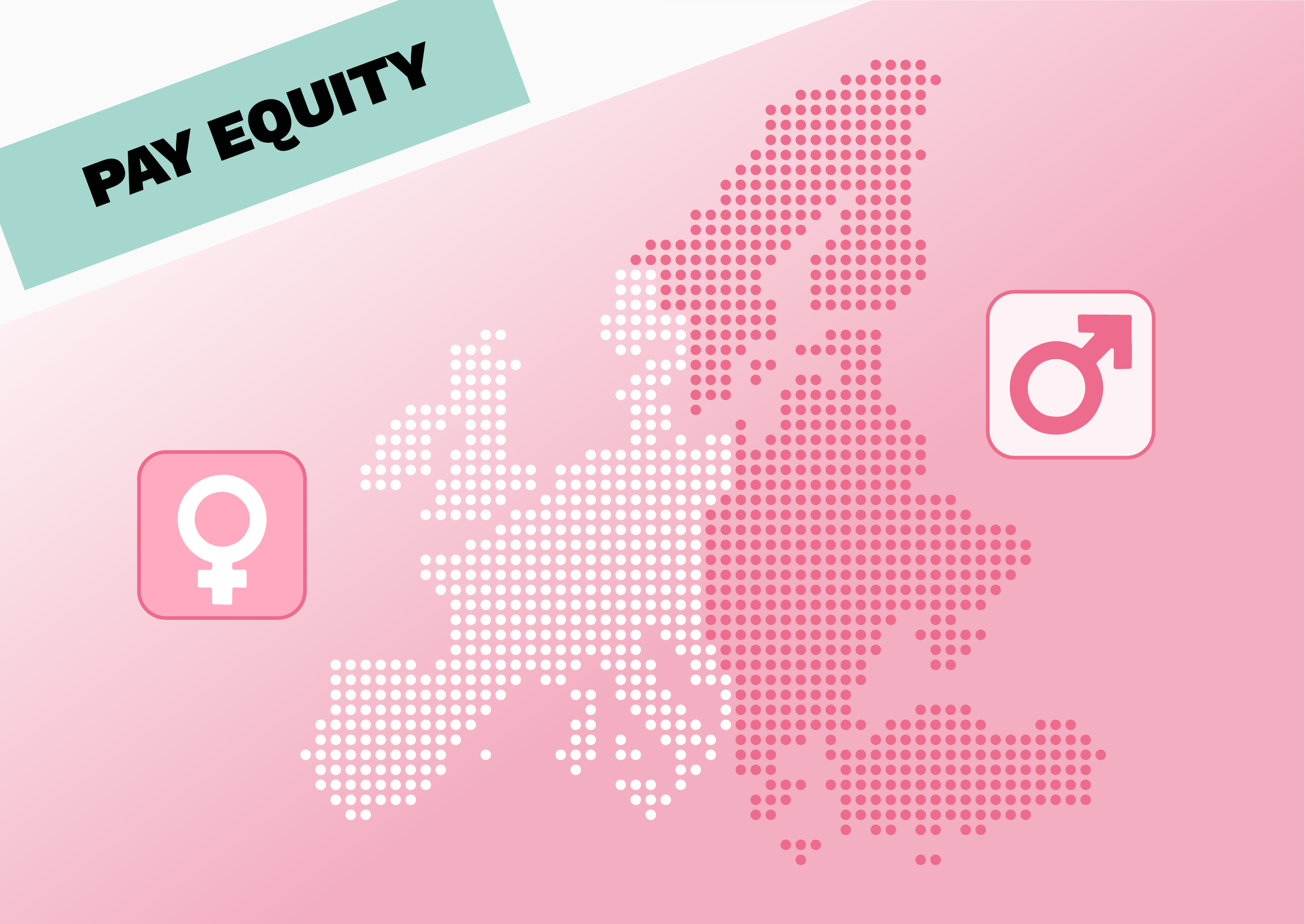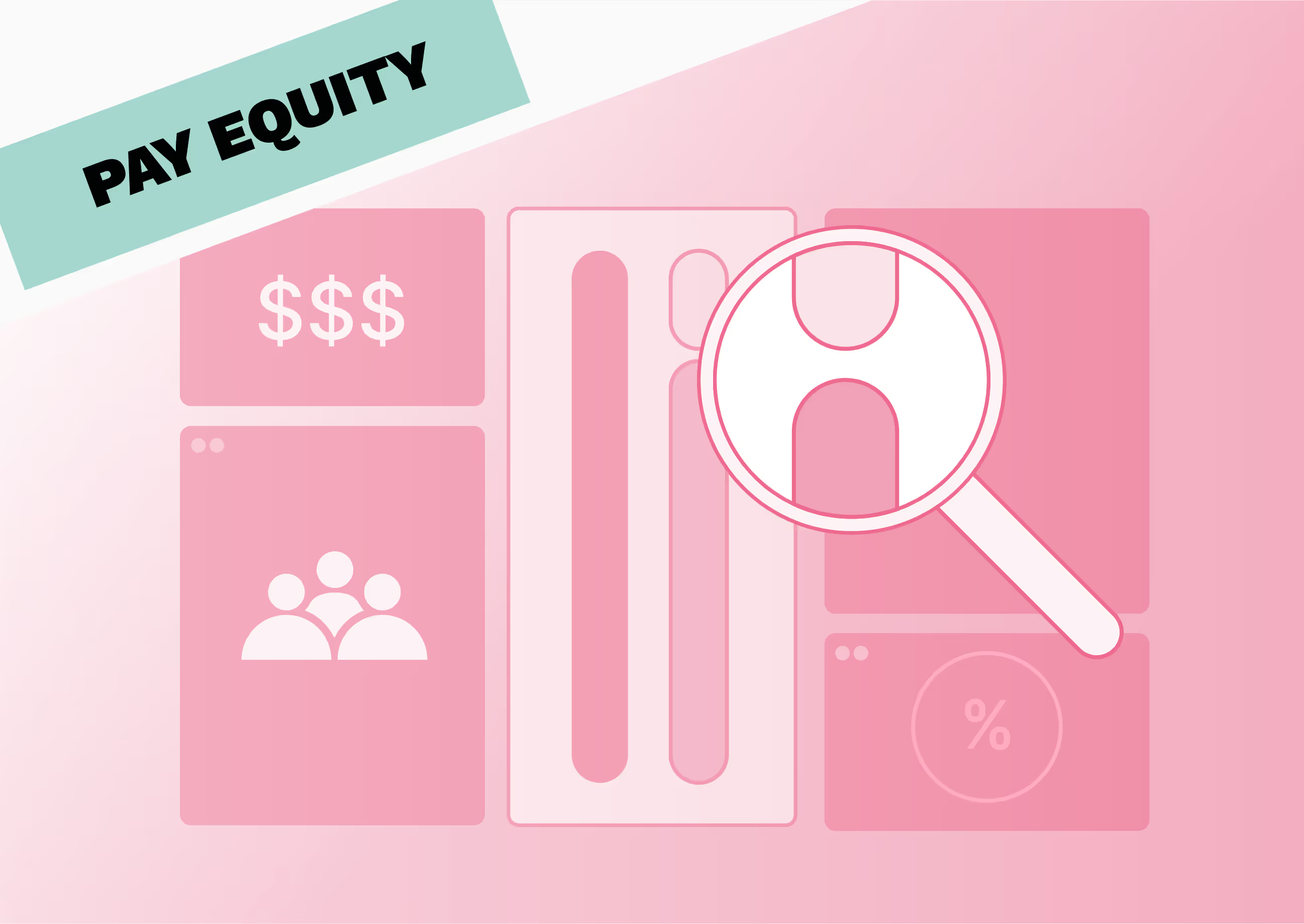Let’s be clear: men and women deserve to be paid equally for performing the same work. Not only is this a legal requirement in much of the world, but it's also — quite obviously — the right thing to do.
But we're not here to make a moral case for pay equity. Instead, we want to talk about some of the real and disastrous legal consequences that unfair pay can have for a business. Read on for some real-life pay inequity horror stories.
The consequences of unfair pay
Paying employees unfairly can have serious consequences — even if it’s not done deliberately. Here are some of the potential consequences employers may face following an equal pay claim:
- Significant fines and penalties: As we’ll see in the following section, employers facing claims of unfair pay can be made to pay significant fines. These can vary depending on the seriousness of the claim, how many employees were involved and how long the unfair treatment went on.
- Backpayment of wages: When an employer is found to have underpaid employees, they’re often made to backpay the additional wages that the employees missed out on. Considering that these cases can go on for several years (and involve multiple employees), this can add up to a significant bill.
- Expensive legal fees: Pay discrimination cases can go on for a long time and involve multiple decisions, hearings and appeals. That means employers facing claims of pay discrimination can rack up significant legal expenses.
- Other legal consequences: As we’ll see in the real-life cases below, courts can also order employers to take other actions to resolve pay gaps and reduce inequity. For example, they may be required to hire experts to conduct regular pay equity audits.
- Serious reputational damage: Getting a reputation as an unfair employer can have a serious impact on a company. Ultimately, it can result in problems attracting new employees — and even customers.
{{cta}}
Pay equity horror stories: 5 cautionary tales for 2025
Ready to dive in? Here are five real-life examples of what can happen when companies fail to ensure equitable compensation.
1. Walt Disney agrees to pay $43.3 million to settle a lawsuit by female employees in California
In November 2024, the Walt Disney company agreed to pay $43 million to settle claims it had been underpaying female employees for the past eight years. In addition to the settlement, Disney agreed to hire a labour economist to analyse pay equity among its California employees for a period of three years.
The case began when a female employee sued the company after learning that six men with the same job title were earning significantly more than she was. This included one male who was earning $20,000 more than his female colleague despite having significantly less experience.
Around 9,000 other current and former employees eventually joined the lawsuit. They alleged that Disney’s practice of basing starting salaries on previous pay without factoring in historical gender disparities led to systematic underpayment of female employees.
2. Google pays $118 million in settlement to thousands of female employees
In 2022, the tech giant Google agreed to settle a years-long class-action lawsuit involving around 15,500 female employees. According to the claimants, Google has been paying women less than men for similar work for years. This included:
- Awarding women lower-paid jobs than men
- Promoting women less frequently than men
- Hiring women at lower levels than men
Google admitted to no wrongdoing but agreed to settle to end the litigation, which had been ongoing since 2017. As well as the settlement, the company agreed to have third-party experts assess its pay equity processes for a period of three years.
3. UK retailer Next could be forced to pay more than £30 million in landmark ‘work of equal value’ case
In August 2024, the UK retailer Next lost an employment tribunal hearing that could force them to pay more than £30 million in compensation and backpay to some 3,540 claimants in an equal pay case. The claimants accused Next of paying retail staff (who are predominantly female) less than warehouse workers (who are mostly male). Although the two roles are different, the tribunal had previously determined that the work was ‘of equal value’.
Next argues that material factors including market rates and difficulties recruiting staff for night shifts, Sundays and public holidays were behind the discrepancy. However, the tribunal ultimately ruled that the company had failed to demonstrate that gender-based discrimination didn’t play a part in the decision to pay the retail staff less. Next denies wrongdoing and plans to appeal against the ruling.
4. Mastercard set to pay $26 million to settle claims of underpaying female, black and Hispanic employees
In January 2025, the payment processing company Mastercard agreed to pay $26 million to settle a class action lawsuit involving 7,500 female, black and hispanic employees. In addition, the company also agreed to hire consultants to audit its pay practices as well as an industrial psychologist to evaluate bias within the organisation.
The lawsuit alleged that Mastercard had paid these employees less than their white, male counterparts for similar work, and often assigned women and people of colour to job levels below their experience. It was also claimed that these groups of employees received smaller pay raises and fewer promotions, meaning pay gaps worsened over time.
5. Apple faces potential class action suit based on systemic underpayment of female employees
Apple is facing a potential class-action lawsuit for supposedly underpaying thousands of female employees. The story began when a female employee found a male colleague’s tax form on an office printer and discovered that he earned almost $10k more than she did despite doing the same job. This led to litigation which has been ongoing since 2019. Lawyers are now seeking class-action status that would involve bringing in more than 12,000 current and former employees.
The claim is that until 2017, Apple routinely asked job candidates about their salary history and used this information to determine starting salaries. While the company stopped this practice when it became illegal in California in 2018, they switched to asking about salary expectations instead. Since candidates tend to ask for salaries only slightly higher than their current earnings, this essentially has the same effect of perpetuating historical pay gaps between men and women.
How to ensure pay equity in 2025
The stories above are all different — but they do share some key characteristics. Based on these examples, here are some ways to protect your business and ensure you don’t end up facing the same consequences:
- Conduct pay equity audits: Identifying and correcting pay discrepancies before they get out of hand is one way to avoid costly litigation. Conducting regular pay equity audits can help you spot emerging pay gaps and determine the underlying causes behind them.
- Refine your job architecture: In equal pay cases, the job level an employee belongs to can be hugely important. But ensuring employees within the same job level are paid equally isn’t enough — you also need to make sure that each employee is assigned to the level that truly reflects their experience. Carefully considering your organisation’s job architecture can help you avoid issues.
- Review your criteria for pay and progression: Similarly, the factors companies use to define salaries and award pay increases need to be 100% objective and gender-neutral if you want to avoid legal trouble. If you haven't yet formalised your pay criteria with an official policy or other documentation, it's a good idea to do so. Ensuring that these criteria are adhered to by managers across your organisation is also key.
- Rethink your hiring processes: Outdated hiring practices such as asking candidates about their salary history can also contribute to pay gaps, ultimately leading to legal trouble. Thinking carefully about each stage of your hiring process and how open it is to bias is a good way to reduce pay inequity in your organisation.
{{cta}}
Why pay equity matters in 2025
Apart from the obvious factors of fairness and justice, there’s a reason we’re so interested in pay equity in 2025. That reason? The EU Pay Transparency Directive. This is a piece of legislation that was approved in 2023 and will enter into effect in all EU member states by June 2026.
It will introduce various new requirements for employees related to pay equity and pay transparency, including:
- A ban on asking about salary history
- Pay transparency for job candidates
- Information rights for employees
- Regular gender pay gap reporting
Crucially, the directive also includes provisions for the protection of victims of pay discrimination, including shifting the burden of proof from the employee to the employer. Put simply, if an employee alleges they have been a victim of pay discrimination, the employer will have to prove this is not the case, rather than the other way around.
Complying with the rules set out in the directive will be an important part of ensuring pay equity in the future — and avoiding fines, legal fees, and other unpleasant consequences. Want to learn more about the directive and what employers can do to prepare? Head to our full guide for the lowdown.
Summarize this article with AI
No time to read it all? Get a clear, structured, and actionable summary in one click.






